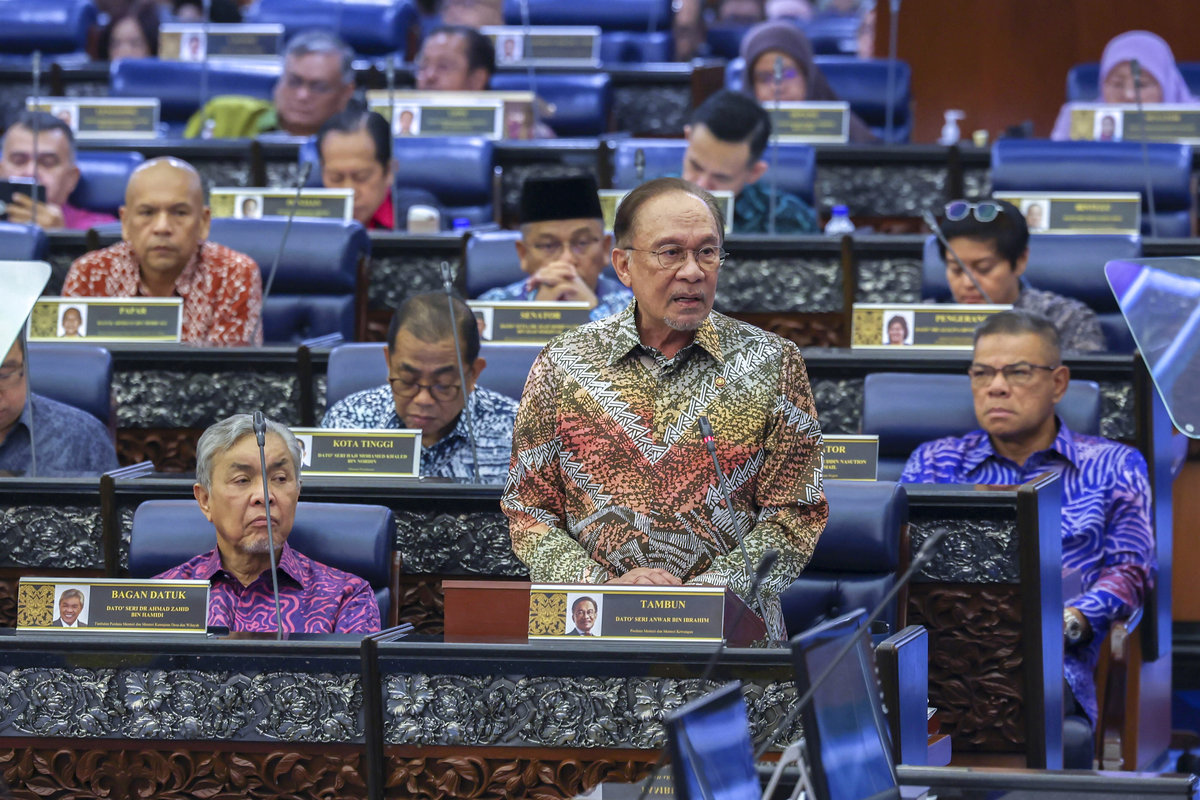PETALING JAYA: The government aims to empower the people, raise social living standards, and ensure access to basic needs such as affordable food, housing, and healthcare, Prime Minister Datuk Seri Anwar Ibrahim said in Parliament today.
He said these efforts are expected to raise the value-added contribution of the agri-food sub-sector to RM58 billion by 2030 under the 13th Malaysia Plan (13MP).
Despite economic progress, Malaysia remains highly dependent on imported food sources—posing a serious threat to national security if supply chains are disrupted, Anwar warned.
To mitigate this risk, the government will intensify domestic food production, with a special focus on large-scale agriculture in Kelantan, Pahang, Terengganu, Sabah, and Sarawak.
The five-season paddy cultivation programme will also be accelerated and expanded across areas under MADA (Kedah and Perlis), KADA (Kelantan), and integrated agriculture zones in Selangor, Perak, and Penang.
Technology transfer will be prioritised, including the development of improved crop varieties, modern agricultural techniques, mechanisation, and efficient land management.
Emphasis will also be placed on smart agriculture, RDCI (research, development, commercialisation and innovation), and the establishment of satellite farms through collaboration with young agropreneurs, research institutions, and industry players.
He said to reduce reliance on specific countries, Malaysia will diversify its food import sources, while tightening import regulations to ensure food safety and quality.
Improvements will also be made throughout the food supply chain—from collection and processing to grading, distribution, and the development of small and medium-sized retail operations.
Anwar stressed that the public mindset must shift from viewing agriculture as mere subsistence to recognising it as a profitable economic opportunity.









